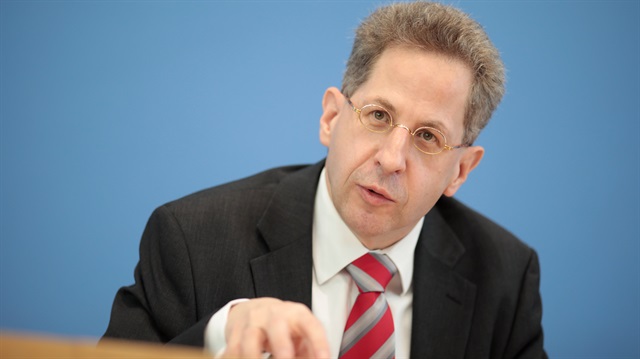
Authorities failed to shed light on killing of 8 Turkish immigrants and others in 2000-2007, admits German intel chief
Despite Wednesday's sentencing of a key suspect, many questions remain unanswered about the murders of the neo-Nazi terrorist group NSU, the chief of Germany’s domestic intelligence agency has admitted.
In an interview with daily Tagesspiegel on Saturday, intelligence chief Hans-Georg Maassen said that in addition to his agency, the police, the judiciary, and parliamentary commissions had also worked hard over the past several years to shed light on the murders.
“Unfortunately it has not been possible to answer all the questions. Many things are still in the dark concerning the NSU murders,” he said.
Maassen made no comment on heavy criticism by opposition parties accusing his agency, the BfV, of trying to cover up the possible role of its officials or informants in the murders by destroying secret files on the National Socialist Underground (NSU).
The shadowy NSU killed 10 people, including eight Turkish immigrants and one Greek as well as a police officer, between 2000 and 2007, but the murders had long remained unresolved.
After a five-year trial, a Munich court last week handed a life sentence to Beate Zschaepe, the main suspect still alive, and lighter sentences to four other suspects who provided support to the terrorist group.
Maassen said he had hoped that the NSU trial could provide answers to many questions, and put an end to conspiracy theories.
“Despite all the efforts, we still don’t know much about their motives, why they killed these individuals," he said.
"Why didn’t the perpetrators claim responsibility for these crimes? Why did a video claiming responsibility for the murders only appear after [Zschaepe's collaborators] Mundlos and Bohnhardt killed themselves?”
- Accusations of racism
The German public first learned of the group's existence and its role in the murders in 2011, when two members -- Uwe Mundlos and Uwe Bohnhardt -- died after an unsuccessful bank robbery and police found guns and extreme-right literature in their apartment.
During the five-year trial, Zschaepe, the only surviving member of the group, declined to cast any light onto the NSU and tried to lay the blame on her two late colleagues.
The scandal surrounding the neo-Nazi NSU has led to criticism of police and security agencies, and accusations of institutional racism in Germany.
Until 2011, Germany’s police and intelligence services ruled out any racial motive for the murders and instead treated immigrant families as suspects, questioning them over alleged connections with organized crime and drug traffickers.
While recent revelations have shown that the BfV had dozens of informants who had contacts with the NSU suspects, officials insisted that they had no prior information about the NSU terror cell or its suspected role in the killings.
However, authorities in the central German state of Hesse recently decided to keep a number of documents under seal for 120 years, prompting further speculation of possible NSU ties.
Hello, the comments you share on our site are a valuable resource for other users. Please respect other users and different opinions. Do not use rude, offensive, derogatory, or discriminatory language.
The floor is all yours.








